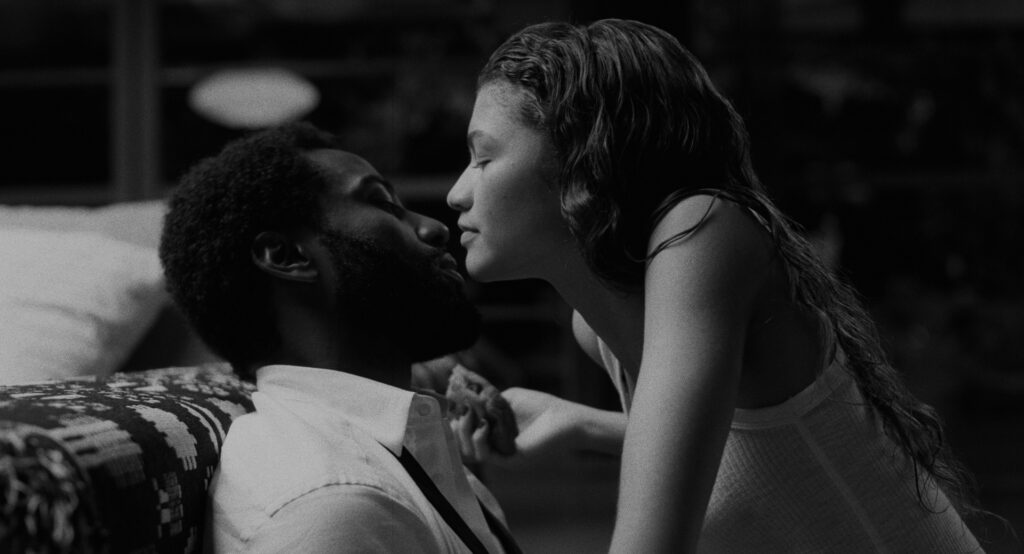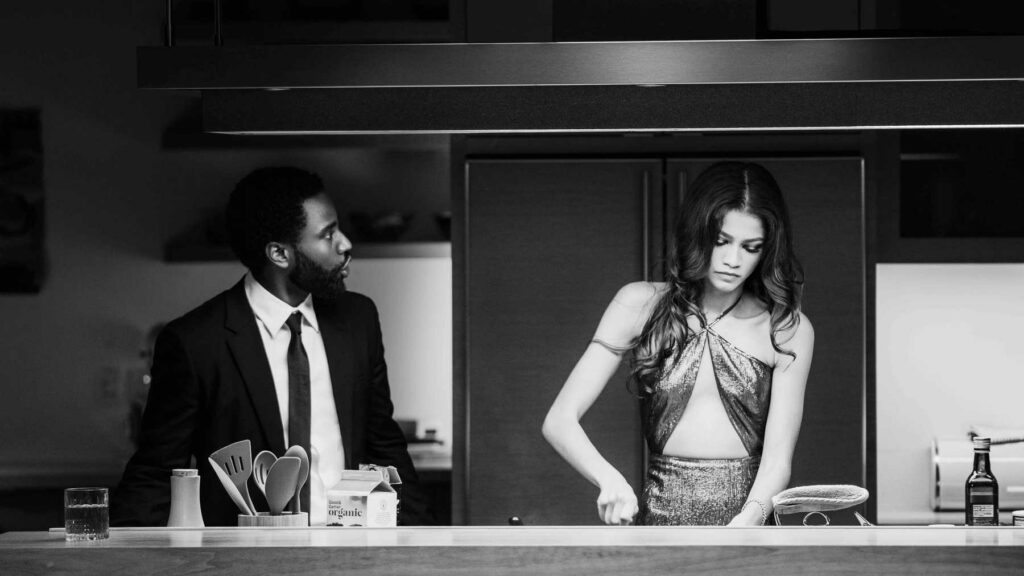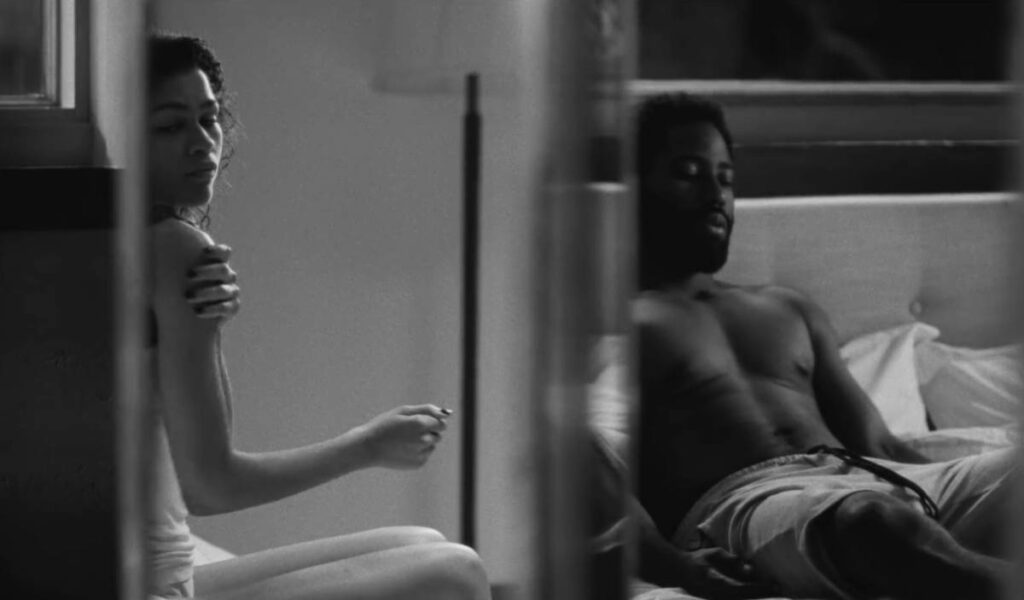Shot in slinky black and white highly reminiscent of Who’s Afraid of Virginia Woolf?, Sam Levinson’s Malcolm & Marie is an intense, gorgeous struggle between lovers as they push and provoke one another, testing boundaries and challenging their relationship’s balance of powers.

John David Washington is Malcolm, an up-and-coming filmmaker high off the gloriously successful premiere of his first feature. Zendaya (who also stars in Levinson’s Euphoria) is his long-time girlfriend Marie who, it soon becomes clear, is deeply hurt by the fact Malcolm overlooked her in his thank-you speech. The slight is doubly hurtful since she believes she inspired the film’s protagonist and helped in the film’s many rewrites.
What follows is a stunning two-hander as the couple, their emotions heightened after a long night, make love and war over ideas of authenticity, the relationship between muse and creator, support and appreciation in relationships, story ownership, their own flaws and strengths, the balance of power between them, the past and future of their relationship, ego and vulnerability, the politicisation of art, virtue-signalling, identity politics, their experience of Hollywood as Black artists, and the state of – white – film criticism. If that sounds like a lot, that’s because it is; despite the single-location shoot, one-night timeframe, and cast of two (this was among the first features shot during the pandemic), Malcolm & Marie near suffocates itself under the weight of its own ambitions.

Levinson owes it all to the conviction of Washington and Zendaya’s performances that they can chew through the theatrical monologuing without closing themselves off from the audience, inviting intimacy through periods of silence and subtle changes in expression. And while so much of the script reads like a play, it’s thanks to the camera’s framing and proximity to its subjects that viewers don’t feel removed from the situation, and to the performances’ more delicate aspects that the characters don’t read as mere mouthpieces for the filmmaker.
Malcolm & Marie would be nothing without the incredible talent in front of the camera, layering the characters in ways that aren’t expositionary: Malcolm’s narcissism hides a vulnerable ego in need of validation, while Marie’s apparent fragility conceals a fierce and near-unshakeable resilience. It’s a relief to finally see Washington’s range showcased after pared-back roles in both Blackkklansman and Tenet; likewise, Zendaya’s first lead feature role leaves no doubt of her status as one of her generation’s most impressive talents.

For all its navel-gazing and occasional obnoxiousness – a prolonged, petty attack on a certain L.A. Times critic reads more like a personal vendetta being waged than it does a valid critique of criticism – Malcolm & Marie succeeds in raising important questions about the ownership of stories and who gets to tell them, the purpose and responsibilities of contemporary art, and the futility (or hypocrisy) of hyper-politicising commercial entertainment.
It tries but fails to provide any satisfactory answers, throwing up so many conflicting takes on so many fronts that the film often feels at odds with itself. And while that may read as a criticism – and in some ways it is – it’s ultimately to its benefit that Malcolm & Marie doesn’t succeed in providing resolution. Whether you find yourself enthralled by Malcolm & Marie or find its self-importance insufferable, these very relevant questions will continue to nag at you, challenge you, and demand to be pondered and debated. Is that enough to make art, “good”? Discuss.
Malcolm & Marie releases to Netflix February 5th.
